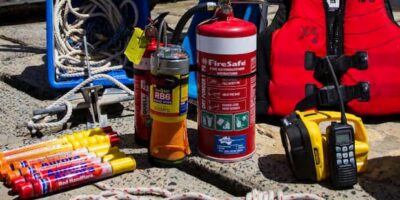Understanding and Maintaining an 18-Foot Boat
An 18-foot boat is a versatile vessel suitable for a variety of water activities. Its size offers a balance between maneuverability and space, making it a popular choice for both novice and experienced boaters. Whether you’re interested in fishing, watersports, or simply cruising, an 18-foot boat can serve your needs well.
Design and Features
An 18-foot boat typically features a durable hull made of materials like fiberglass or aluminum. The hull design influences the boat’s performance, speed, and stability. V-hulls are common, providing a smooth ride by cutting through waves. Flat-bottomed designs offer better stability on calm waters, ideal for fishing.
Most 18-foot boats come equipped with outboard motors. These engines are mounted at the rear and are easy to maintain. They offer sufficient power for a variety of activities, from towing inflatable rafts to allowing for a swift journey across the water.
Types of 18-Foot Boats
- Fishing Boats: Equipped with live wells, rod holders, and wide casting platforms. Ideal for freshwater and saltwater fishing.
- Pontoon Boats: Known for their spacious decks, great for family outings and social gatherings.
- Bowriders: Sporty and perfect for watersports and day trips.
- Center Consoles: Featuring an open deck with a central control console, excellent for fishing and cruising.
Buying Considerations
When purchasing an 18-foot boat, consider its primary use. Will you be fishing, engaging in watersports, or cruising? Assess the boat’s capacity and ensure it can accommodate your typical number of passengers safely. Determine the type of engine that best suits your needs. Outboards are user-friendly and easy to replace, while inboards offer a cleaner transom.
Inspect the boat’s storage options. Adequate space for gear, life jackets, and other necessities is crucial. Check for any signs of wear or damage, especially in used boats. Structural integrity is paramount to ensure safety on the water.
Maintenance Tips
- Regular Cleaning: Wash your boat after each use to remove salt, grime, and debris. This prevents corrosion and maintains the boat’s appearance.
- Engine Care: Perform routine checks on the engine, ensuring the oil levels, fuel system, and cooling system are in good condition.
- Storage: Store your boat properly when not in use. A covered storage area protects it from the elements. During winter, winterize your boat to prevent damage from freezing temperatures.
- Inspection: Regularly inspect the hull for any cracks or damage. Check the electrical systems and ensure all navigation lights are functioning correctly.
Essential Equipment
Equipping your boat with necessary safety gear is non-negotiable. Life jackets for all passengers, a fire extinguisher, flares, and a first aid kit are essentials. A marine radio ensures communication in case of emergencies. Always have an anchor and anchor line, as well as a paddle to navigate in case of engine failure.
Registration and Licensing
Ensure your boat is properly registered with the relevant authorities. This varies by location but typically involves filling out forms and paying a fee. Familiarize yourself with local boating regulations to avoid fines and ensure a safe experience on the water. In some areas, a boating license or safety course certification may be required.
Insurance
Boat insurance can protect you from financial loss due to accidents, theft, or damage. Policies vary, so assess coverage options carefully. Typical coverage includes liability, damage from accidents, and theft protection. Some policies may also offer roadside assistance and towing services.
Navigation
Proficiency in navigation is essential. Learn how to read nautical charts and operate a GPS. Understand local waterway markers and buoys. Familiarize yourself with rules of the water, such as right-of-way, and be cautious of weather conditions. Adequate preparation ensures a safe and enjoyable boating experience.
Common Activities
Fishing is a popular use for 18-foot boats. Equipped with the right gear, you can target freshwater species in lakes and rivers, or saltwater fish in coastal areas. Bowriders are great for watersports such as skiing or wakeboarding. Pontoon boats offer a relaxing environment for picnics, social gatherings, or sunset cruises.
Community and Events
The boating community is vibrant and welcoming. Participate in local boating events, fishing tournaments, and social gatherings. Join online forums and social media groups to connect with other boaters. Sharing experiences and tips enhances your boating knowledge and enjoyment.
Environmental Considerations
Practice eco-friendly boating habits. Avoid spilling fuel and oil, and dispose of waste properly. Use non-toxic cleaning products. Be mindful of marine life and habitats, anchoring only in designated areas. Supporting conservation efforts helps protect our waterways for future generations.
An 18-foot boat is an excellent investment for those passionate about the water. Understanding its features, proper maintenance, and safe boating practices ensures you get the most out of your vessel. Whether fishing, engaging in watersports, or simply cruising, this versatile boat offers countless adventures and memories.
